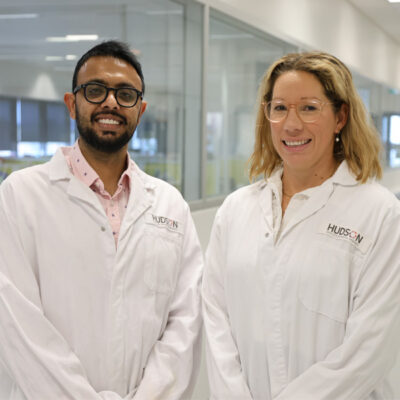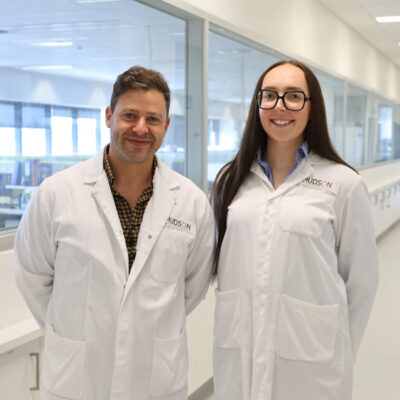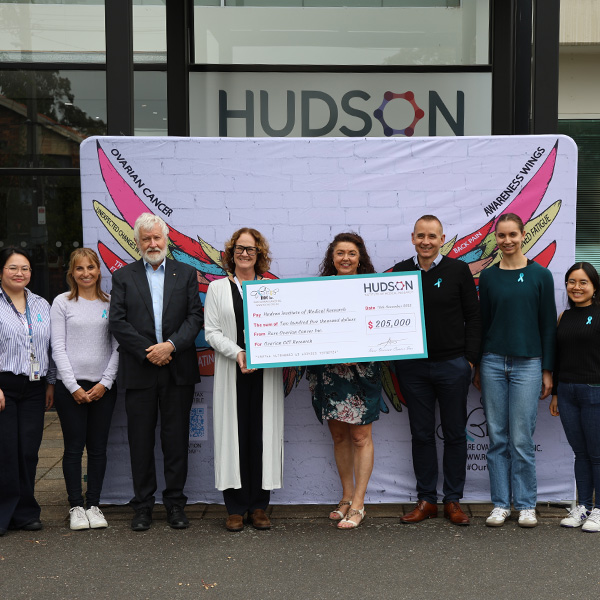Treatment hope for premature babies
By Rob Clancy, staff writer
A treatment offering hope to parents of very premature babies is showing great promise, in the first worldwide stocktake of research into umbilical cord blood stem cells.
Researchers from Hudson Institute of Medical Research have compiled the first comprehensive review of research using umbilical cord blood and cord-tissue stem cells to treat diseases in premature babies, and found their uses to be widespread and with evidence of benefit.
According to lead author Dr Lindsay Zhou, umbilical cord blood and cord-tissue derived cells have been given to a total of 206 premature babies worldwide so far in 12 clinical trials. These trials show that cord blood and cord tissue cell treatments are safe for premature babies.
“They are being used to treat conditions in premature babies such as birth asphyxia, chronic lung disease of prematurity, congenital heart disease, and injuries to the preterm brain,” Dr Zhou said.
“There are 24 further studies underway, including one being conducted by the team here at Monash Children’s Hospital for extremely preterm infants (the CordSaFe study),” he said.
Early-phase clinical trials for premature baby treatment
But despite all this progress, it appears this treatment for premature babies has a long way to go before being widely adopted.
Preterm babies often face an uphill battle from birth, with much higher rates of respiratory, cardiovascular and neurological complications than babies born full term. They often experience lung, heart and brain inflammation and injury leading to life-long consequences such as bronchopulmonary dysplasia, pulmonary and systemic hypertension and cerebral palsy.
“Umbilical cord blood-derived cell treatment is still in early-phase clinical trials around the world, and there is need for further laboratory and clinical studies to find ways to use them effectively to treat complications of prematurity,” Dr Zhou said.
“We hope that umbilical cord blood stem cells can be used like a rescue team, to come in and help premature babies who are injured, and replenish supplies.”
Hudson Institute is home to Australia’s largest group of inflammation researchers, and a leader in developing treatments for conditions affecting preterm babies.
Facts
- Globally about 15 million babies – up to one in 10 – are born preterm each year and this rate is increasing.
- In Australia, 8.6 per cent of babies are born preterm.
- While survival rates for babies born preterm are improving, the risk of disability (eg; cerebral palsy and learning delays) and long-term morbidity (particularly chronic lung disease) remains stubbornly high, particularly in infants born extremely premature.
Collaborators | Courtney McDonald, Tamara Yawno, Graham Jenkin, Suzanne Miller, Atul Malhotra
Funders | European Society for Paediatric Research (ESPR)
Contact us
Hudson Institute communications
t: + 61 3 8572 2761
e: communications@hudson.org.au
In this article
About Hudson Institute
Hudson Institute’ s research programs deliver in three areas of medical need – inflammation, cancer, women’s and newborn health. More
Hudson News
Get the inside view on discoveries and patient stories
“Thank you Hudson Institute researchers. Your work brings such hope to all women with ovarian cancer knowing that potentially women in the future won't have to go through what we have!”







